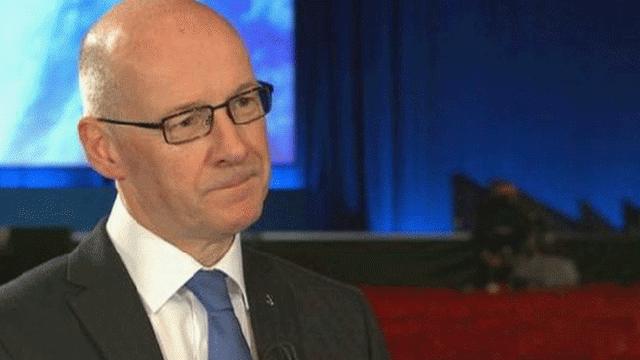SNP Conference 2015: Who are the party's new members?
- Published
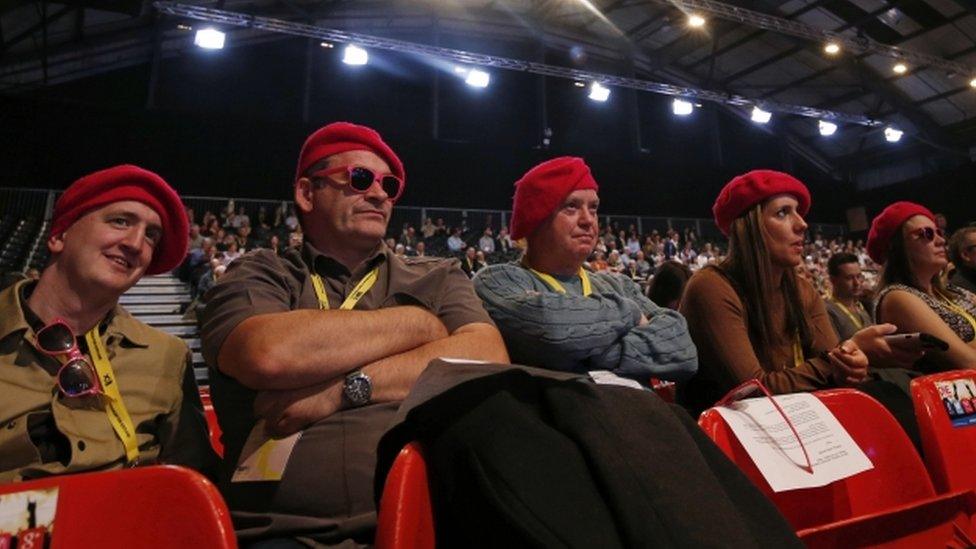
Some delegates wore berets in reference to the @AngrySalmond Twitter parody
SNP leader Nicola Sturgeon used her opening conference address to announce that the party had 114,121 members. But who are they, and how are they making themselves heard (and seen) at the conference?

At one fringe event, SNP Westminster leader Angus Robertson asked for a show of hands to see who was at their first conference, and at least half of the (packed) auditorium responded.
It's no secret that the SNP has hoovered up former devotees of other parties, in the wake of the referendum campaign - even some of the speakers debating resolutions on stage admitted having recently been Labour Party members.
But on top of these relative political veterans, more than a few new attendees among the 3,500 conference delegates profess having little direct engagement previously.
One man said he had taken a "plague on all their houses" approach to political parties all his life, until joining the SNP after he retired from a career in financial services.
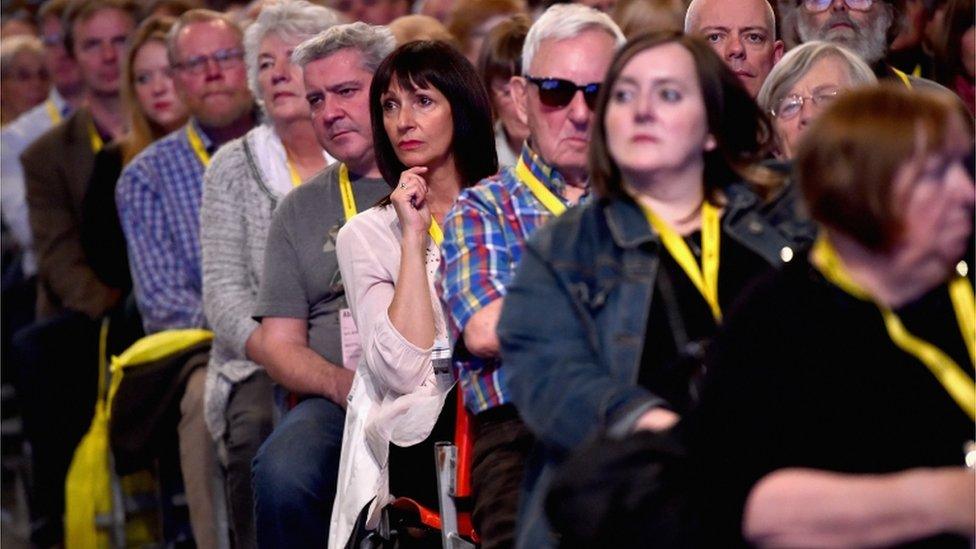
More than 3,000 of the 114,000 SNP members are attending the SNP conference in Aberdeen
This is typical of the activists roaming the halls of the AECC in Aberdeen.
The delegates at the conference are, in a word, enthusiastic; they hang on every word uttered on stage, laugh and boo at the appropriate pantomime moments at mention of the Labour and Conservative punching bags, and roared with approval at the very sight of party talisman Alex Salmond.
While there remains a strong element of the more traditional, grey-haired conference delegate among the party faithful present, there are also quite a few younger faces present, albeit often hunched over smartphones.
Members have also taken to the fringe meetings with relish, packing out conference rooms and decimating tables of complimentary nibbles.
Strong opinions
And despite a light-hearted atmosphere pervading amongst the weighty policy debate - with selfies being snapped left right and centre and one group dressed up as the "Sexy Salmond" character, complete with pink berets - they take their politics very seriously.
Activists old and new have come to the table with strong opinions; a motion commending the moratorium on fracking was very nearly sent back by members hungry to demand a full ban on the industry, after a hotly contested vote.
And a second motion on radical land reform was sent back, to be made still more radical.
Another area where activists may be more enthusiastic than their leadership is the issue of independence.
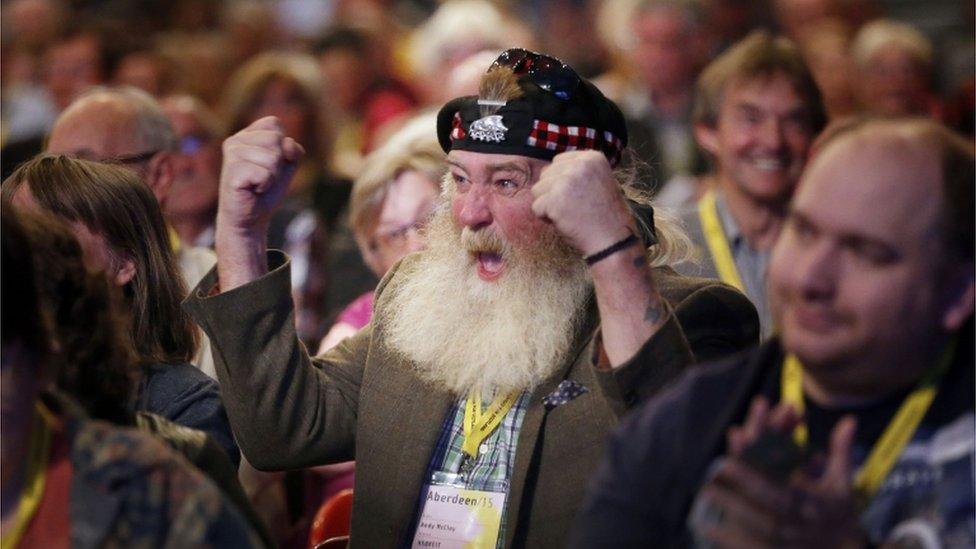
An enthusiastic party members cheers the speaker on the conference stage
In her opening address, Ms Sturgeon made efforts to underline the broader appeal of the SNP, across a range of policies from social justice to housing, even pitching to 'No' voters - a line her deputy John Swinney repeated in his speech.
Party leaders have refused to be drawn on when there might be a second referendum or what the "triggers" for it would be - but their footsoldiers, especially the new members invigorated by last year's referendum campaign, make no secret of the strength of their feelings.
They joined the SNP because of independence. It was the issue which attracted them to the party, and remains priority number one.
Many want to press the advantage currently held in the polls - one man told me he believed there should be a new referendum within three or four years. "It's only a few percent of a difference, it could come down to a few hundred thousand people," he said.
The biggest cheer Ms Sturgeon received during her opening address was when she underlined her dedication to Scotland going it alone, and even during the fracking debate one speaker summed up the mood of activists by saying "independence is the prize we want".
So, while the SNP has a diverse and vast new membership, those members remain committed to the party's traditional core issue, independence - despite attempts to broaden the appeal.
- Published16 October 2015
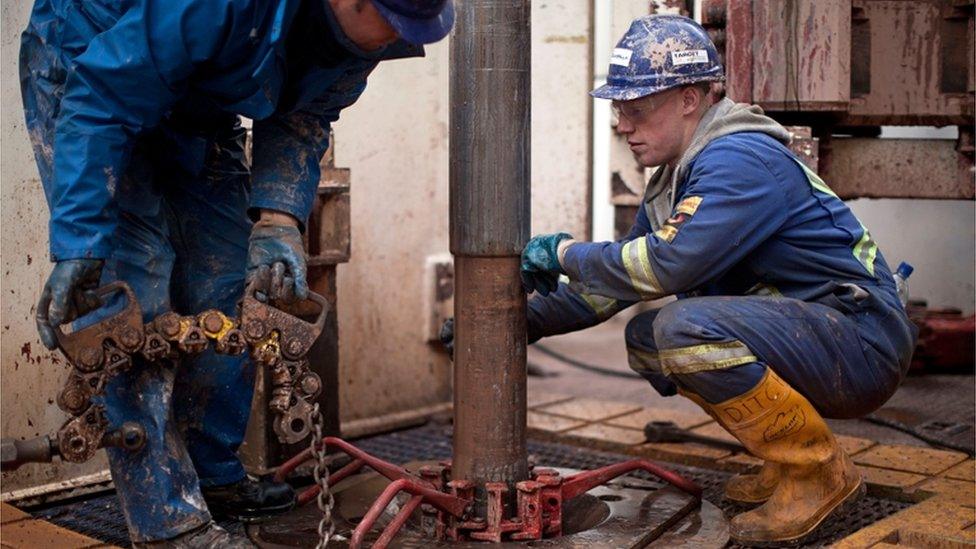
- Published16 October 2015
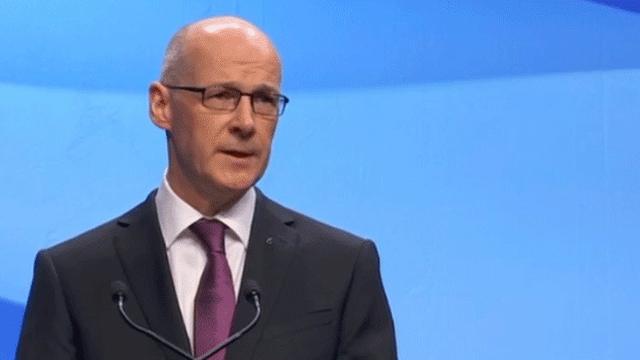
- Published15 October 2015
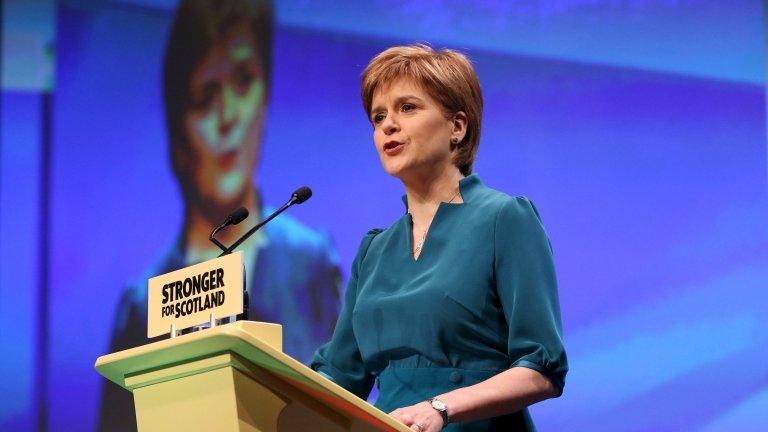
- Published15 October 2015
